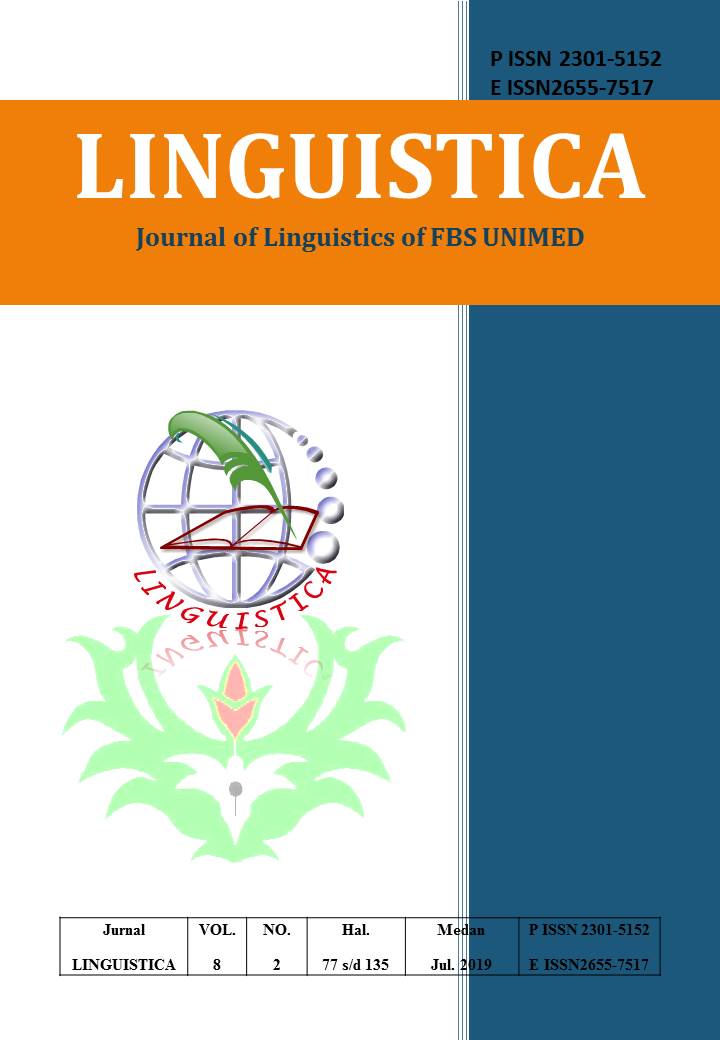POSITIVE POLITENESS STRATEGIES REFLECTED IN ANAK SASADA MOVIE
DOI:
https://doi.org/10.24114/jalu.v8i2.13861Abstract
This research was focused on the topic about positive politeness strategies reflected in Anak Sasada movie. This study was aimed to describe the types of positive politeness stategies employed by the characters in Anak Sasada movie. To describe the positive politeness strategies realized in the utterances employed by the characters in Anak Sasada movie. This study was conducted by descriptive qualitative method. The source of data was taken from Anak Sasada script movie. The data was collected by using documentary sheet. The technique for analyzing the data is descriptive qualitative research.The results of the study show the important points. There are ten types of positive politeness strategies employed by the characters in Anak Sasada movie when having conversation: Among all strategies, Notice is the most frequent strategy as the characters need to share notice with the others. Notice strategies (16 out of 77), Use Solidarity in Group Identity Markers (15), Offer or promise (3), Exaggerate (approval, sympathy with hearer) (6), Joke (5 out of 77), Assert or Presupposes Speaker™s Knowledge Aggreement (1), Give (Ask for) Reasons (11 out 77), Give gifts to Addressee (goods, symphaty, understanding, cooperation) (8 out of 77). Keywords : Politeness , Toba Batak, Positive PolitenessDownloads
Published
2019-07-04
Issue
Section
Articles
License
Copyright (c) 2019 Destin Merry Desta, I Wayan Dirgeyasa, Lidiman Sahat Martua Sinaga

This work is licensed under a Creative Commons Attribution-ShareAlike 4.0 International License.
Authors who publish with this journal agree to the following terms:
- Authors retain copyright and grant the journal the right of first publication with the work simultaneously licensed under a Creative Commons Attribution License that allows others to share the work with an acknowledgment of the work's authorship and initial publication in this journal.
- Authors are able to enter into separate, additional contractual arrangements for the non-exclusive distribution of the journal's published version of the work (e.g., post it to an institutional repository or publish it in a book), with an acknowledgment of its initial publication in this journal.
- Authors are permitted and encouraged to post their work online (e.g., in institutional repositories or on their website) prior to and during the submission process, as it can lead to productive exchanges, as well as earlier and greater citation of published work (See The Effect of Open Access).
- This work is licensed under a Creative Commons Attribution-ShareAlike 4.0 International License.

